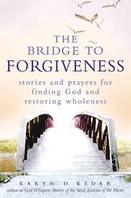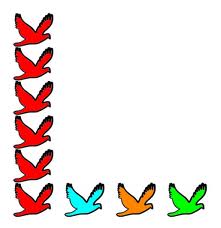56 years ago, my step father and his wife had a son who was born with severe disabilities. He was placed in an institution as an infant, and, to this day, has never been visited by any of his relatives.
In this week and next week’s Torah portions Tazria and Metzora, we also witness the somewhat cold treatment of those in the Israelite community who present with physical defects and blemishes. The text is matter of fact and seemingly void of empathy for those who have the misfortune to be plagued by that which is determined to be impure.
In her book, Judaism and Disability, Judith Abrams explains the role of the priests and ritual purity in the day-to-day workings of the temple, along with the implications of these for people with disabilities. The Temple was understood to be a place where Heaven and Earth overlapped and the priests operated in the Temple's most dangerous zone, so the codes dealing with ritual impurity existed for the priests' safety. "To survive in such a dangerous position, the priest had to be fit for the company of angels,” writes Abrams.
In the sacrificial society of the ancient Israelites, life in its purest form, was symbolized by 1. An absence of the taint of death (i.e., ritual impurity), 2. The embodiment of perfect human life (the blemishless priest), 3. The perfect sacrificial animal, and 4. Senses fully stimulated by incense, bells, and loaves.
This helps to explain why there was a need to banish those who were imperfect from the community.
After the fall of the Temple, some vestiges of the ancient practices continued to be honored - such as the priestly benediction. It was thought God's presence comes and rests on the priests, so congregants should look away or they might die. Thus, the sages who protected and nurtured Judaism after the fall of the Temple gave instructions that the hands of those giving the blessing should be as inconspicuous as possible, free of deformity or blemish. Over time, the oral code known as Tosefta softened this teaching: If everyone is used to how the blesser's hands look, then he can still give the blessing.
What Abrams outlines in her book is that, over time, Judaism has shown a continued evolution in thinking with regard to people with disabilities, balancing respect and awe of God's holiness with real-life human concerns.
Beginning in the very book Leviticus that outlines such harshness of treatment for those who are disabled, we read:
You shall not insult the deaf or place a stumbling block before the blind (Leviticus 19:14) And, we find in Proverbs (31:8), speak up for those who cannot speak, for the rights of the unfortunate. Speak up, judge righteously, and champion the poor and needy.
Ben Azzai taught in Pirkei Avot (4:3), do not disdain any person; do not underestimate the importance of anything. For there is no person who does not have an hour, and there is not a thing without its place.
In the Jerusalem Talmud, Rabbi Yochanan said: Each of the 40 days that Moses was on Mount Sinai, God taught him entire Torah. And each night, Moses forgot what he had learned. Finally, God gave it to him as a gift. If so, why did God not give the Torah to him as a gift on the first day? In order to encourage the teachers of those who learn in a non-traditional manner.
And, in the Mishneh Torah, we are told one who sees … people whose physical nature is distinct must recite the blessing, “Blessed are you, God, Sovereign of all worlds who creates variety in life.”
In 1959, Rabbi Isaac Herzog, chief rabbi of Israel, insisted rabbis accept people with deafness since it is obvious in modern times that deaf people can both learn and communicate.
And, in our own times, we find that Judaism has continued to make strides with regard to attitudes towards disability. We only need search the internet to find a plethora of Jewish organizations dedicated to healing the sick, feeding the hungry, and alleviating the pain of those who are suffering.
Indeed, my own son, who works with autistic and down’s syndrome youth, has actually found that he gains energy from finding ways to connect with those who are differently abled.
Kenneth Kaplan, my step-father’s son is now middle-aged and continues to live in the same facility, financially supported yet physically and emotional abandoned by his family. May Judaism continue to evolve in its treatment of the imperfect so that the tragedy of Kenneth Kaplan’s life need never be repeated.
In this week and next week’s Torah portions Tazria and Metzora, we also witness the somewhat cold treatment of those in the Israelite community who present with physical defects and blemishes. The text is matter of fact and seemingly void of empathy for those who have the misfortune to be plagued by that which is determined to be impure.
In her book, Judaism and Disability, Judith Abrams explains the role of the priests and ritual purity in the day-to-day workings of the temple, along with the implications of these for people with disabilities. The Temple was understood to be a place where Heaven and Earth overlapped and the priests operated in the Temple's most dangerous zone, so the codes dealing with ritual impurity existed for the priests' safety. "To survive in such a dangerous position, the priest had to be fit for the company of angels,” writes Abrams.
In the sacrificial society of the ancient Israelites, life in its purest form, was symbolized by 1. An absence of the taint of death (i.e., ritual impurity), 2. The embodiment of perfect human life (the blemishless priest), 3. The perfect sacrificial animal, and 4. Senses fully stimulated by incense, bells, and loaves.
This helps to explain why there was a need to banish those who were imperfect from the community.
After the fall of the Temple, some vestiges of the ancient practices continued to be honored - such as the priestly benediction. It was thought God's presence comes and rests on the priests, so congregants should look away or they might die. Thus, the sages who protected and nurtured Judaism after the fall of the Temple gave instructions that the hands of those giving the blessing should be as inconspicuous as possible, free of deformity or blemish. Over time, the oral code known as Tosefta softened this teaching: If everyone is used to how the blesser's hands look, then he can still give the blessing.
What Abrams outlines in her book is that, over time, Judaism has shown a continued evolution in thinking with regard to people with disabilities, balancing respect and awe of God's holiness with real-life human concerns.
Beginning in the very book Leviticus that outlines such harshness of treatment for those who are disabled, we read:
You shall not insult the deaf or place a stumbling block before the blind (Leviticus 19:14) And, we find in Proverbs (31:8), speak up for those who cannot speak, for the rights of the unfortunate. Speak up, judge righteously, and champion the poor and needy.
Ben Azzai taught in Pirkei Avot (4:3), do not disdain any person; do not underestimate the importance of anything. For there is no person who does not have an hour, and there is not a thing without its place.
In the Jerusalem Talmud, Rabbi Yochanan said: Each of the 40 days that Moses was on Mount Sinai, God taught him entire Torah. And each night, Moses forgot what he had learned. Finally, God gave it to him as a gift. If so, why did God not give the Torah to him as a gift on the first day? In order to encourage the teachers of those who learn in a non-traditional manner.
And, in the Mishneh Torah, we are told one who sees … people whose physical nature is distinct must recite the blessing, “Blessed are you, God, Sovereign of all worlds who creates variety in life.”
In 1959, Rabbi Isaac Herzog, chief rabbi of Israel, insisted rabbis accept people with deafness since it is obvious in modern times that deaf people can both learn and communicate.
And, in our own times, we find that Judaism has continued to make strides with regard to attitudes towards disability. We only need search the internet to find a plethora of Jewish organizations dedicated to healing the sick, feeding the hungry, and alleviating the pain of those who are suffering.
Indeed, my own son, who works with autistic and down’s syndrome youth, has actually found that he gains energy from finding ways to connect with those who are differently abled.
Kenneth Kaplan, my step-father’s son is now middle-aged and continues to live in the same facility, financially supported yet physically and emotional abandoned by his family. May Judaism continue to evolve in its treatment of the imperfect so that the tragedy of Kenneth Kaplan’s life need never be repeated.



 RSS Feed
RSS Feed
